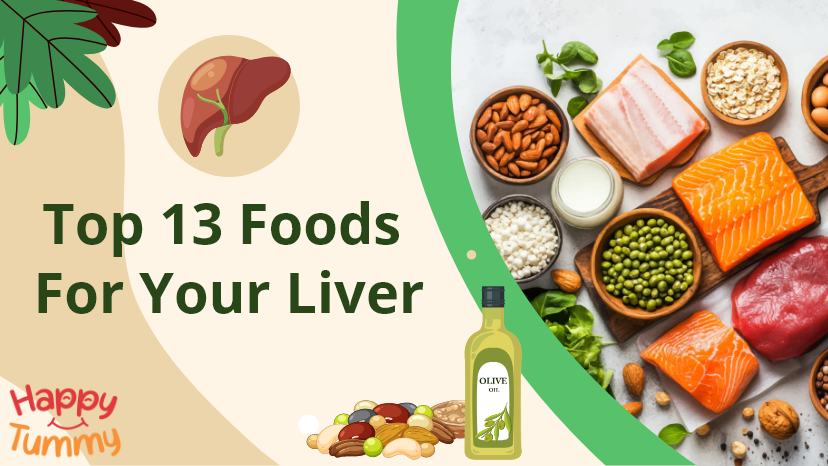Table of Contents
In today’s fast-paced world, we spend much of our waking hours making decisions that are frequently related to our diet. After a hard day, takeaway or fast food may be the option for dinner.
Although you might be concerned about how your diet choices affect your blood pressure or waist size, we also want to draw your attention to liver health in this post.
The liver is in charge of several bodily functions, including producing proteins, cholesterol, and bile and storing vitamins, minerals, and even carbs.
It also eliminates toxins, including alcohol, drugs, and organic waste products from metabolism. Maintaining your health requires keeping your liver in good condition.
While it may be impossible to control every risk factor, some foods and beverages can support liver health. This post will discuss the best foods for liver health and some that are bad.
Foods For Liver Health
Your diet is crucial for maintaining the health and function of your liver. This holds true whether your liver is healthy or if you have liver disease.
We’ll go over which foods are ideal for liver health.
#1 Coffee

If you can’t go a day without coffee, it’s good to know that it may be excellent for your liver.
According to studies, consuming two to three cups daily may shield your liver from harm brought on by excessive alcohol consumption or a poor diet. Espresso, instant, and filtered all seem to work.
Coffee is good for everyone’s health. Coffee consumption of at least two cups per day may help enhance the functioning of the liver, as coffee consumption is associated with improved liver enzymes (ALT, AST, and GGTP).[1]
So, it is one of the best beverages to promote liver health.
#2 Legumes and Soy
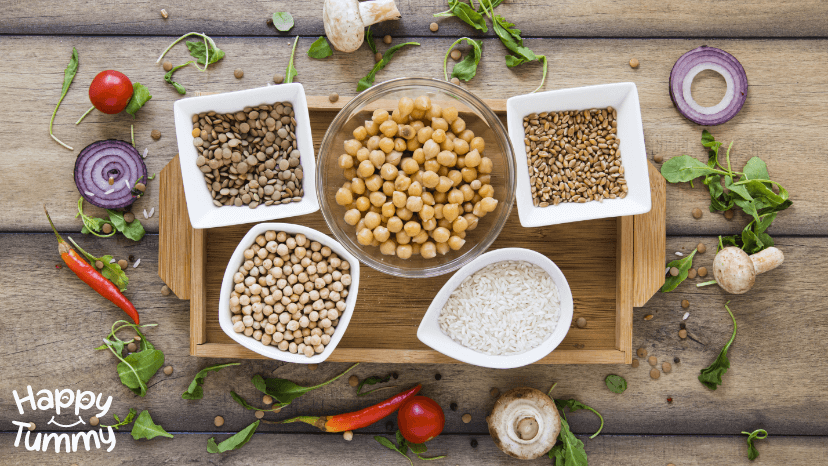
Including legumes and soy in your meals and snacks is a wise decision. In a small study with 42 premenopausal women who had central obesity, researchers found that following a low-calorie diet that included legumes for six weeks led to significant improvements.
The participants showed lower levels of liver enzymes (AST and ALT), better insulin resistance (HOMA-IR), improved blood pressure, reduced triglycerides, and lower fasting blood sugar compared to those on a similar diet without legumes.
Additionally, another study found that eating more legumes was linked to a lower risk of developing non-alcoholic fatty liver disease (NAFLD).[2][A1]
Thus, adding legumes to a low-calorie diet may support improvements in liver function.
#3 Ginger
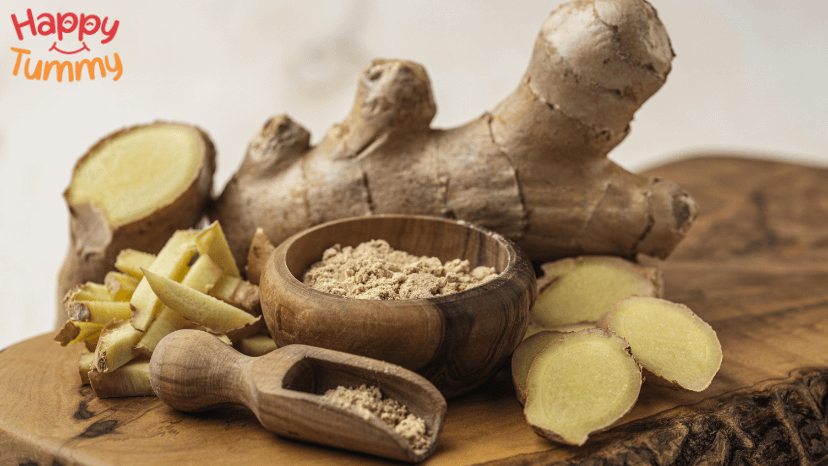
Ginger is commonly used both as a spice in food and as a natural remedy. It is well-known for helping with nausea and vomiting and may also be beneficial for other conditions, including liver issues.
Ginger may have additional health benefits, such as lowering cholesterol and blood sugar levels and acting as an antioxidant.
Research suggests that taking up to 2 grams of ginger per day might help reduce triglycerides and total cholesterol levels. [3]
#4 Spinach
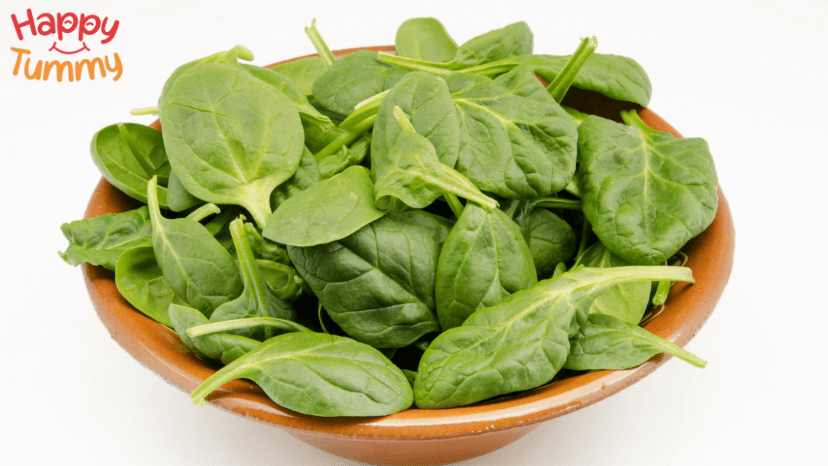
Glutathione, a potent antioxidant found in spinach, may support healthy liver function.[4]
Its high antioxidant and polyphenol content is suitable for liver health because it may help manage oxidative stress and the buildup of liver fat, which may help deal with nonalcoholic fatty liver disease (NAFLD).[5]
Further, spinach contains fibre and other things your liver needs. It’s also effortless to prepare spinach.
You can sauté it with olive oil and garlic, and it’s a terrific base for a supper salad. Once it has softened, add some fresh parmesan on top.
#5 Olive Oil
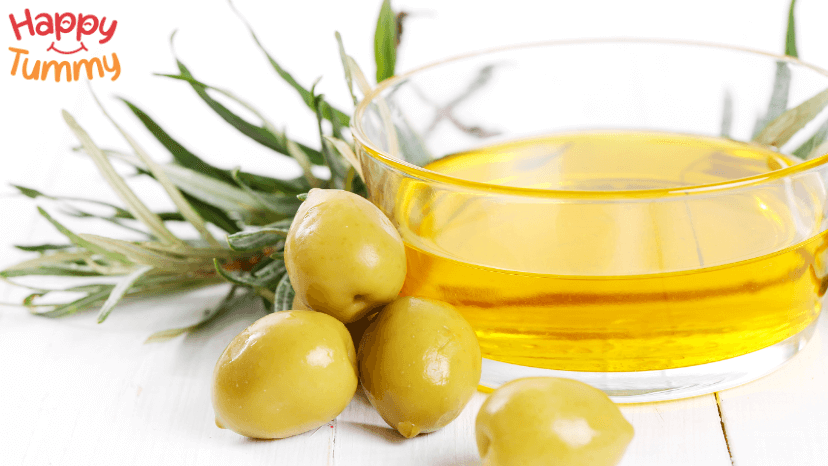
Olive oil is a healthy fat due to its numerous health advantages, including improved metabolic and cardiac health. It also benefits the liver.
While too much fat is bad for the liver, some fats can be beneficial.
Adding olive oil to the diet may manage the severity of nonalcoholic fatty liver disease by controlling the quantity of fat deposited in the liver. This is because the oil contains many unsaturated fatty acids.
Additionally, olive oil’s polyphenols have antioxidant qualities that may help the liver fight off oxidative stress and manage damage. [6]
Even if it’s healthy, overeating olive oil can increase caloric consumption, so moderation is key.
Extra virgin olive oil (EVOO) may benefit liver health by managing fat buildup, inflammation, and fibrosis. Its high monounsaturated fats may support key cellular processes, like managing inflammation, stress, and fat production, and promoting autophagy, according to research.[10]
#6 Oatmeal
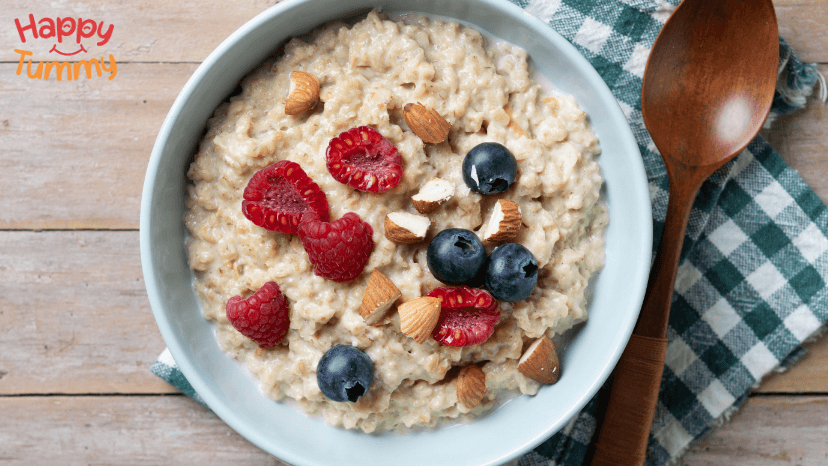
Oatmeal is a simple way to increase your intake of fibre. Fibre plays a vital role in digestion, and certain fibres found in oats may be particularly beneficial for the liver.
Beta-glucan, a soluble fibre that is the primary beneficial component in oats, may help manage blood sugar, encourage fullness, and favourably affect the gut flora, which is vital for liver function.[7]
Instead of using fast oatmeal, people who want to include oats in their diet should use steel-cut or whole oats. The presence of fillers like flour or sugars in instant oats can make it less healthy.
#7 Fatty fish
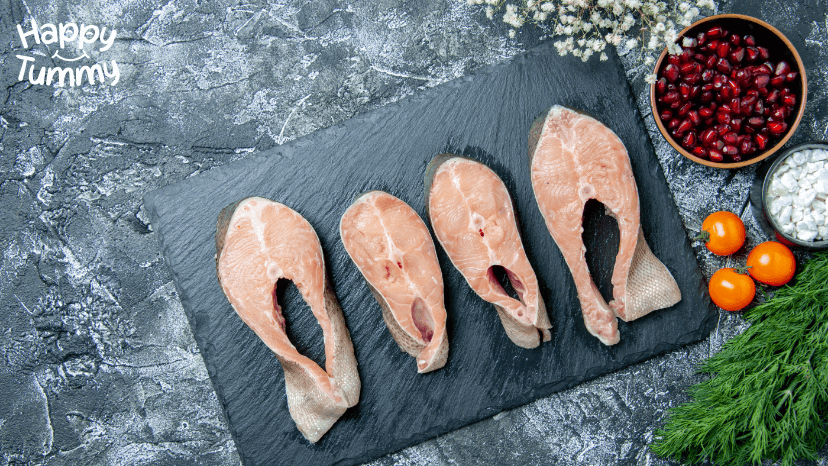
Supplementing with fish oil and eating fatty fish may help manage the effects of health conditions like NAFLD.
The main advantage of eating fatty fish for the liver is that it contains many omega-3 fatty acids, particularly EPA and DHA, which have anti-inflammatory qualities and can help manage the liver’s lipid metabolism.
Because they seem to stabilise the liver’s enzyme levels and stop the accumulation of extra fat, these fats may be particularly beneficial for the liver. [8]
#8 Green Tea
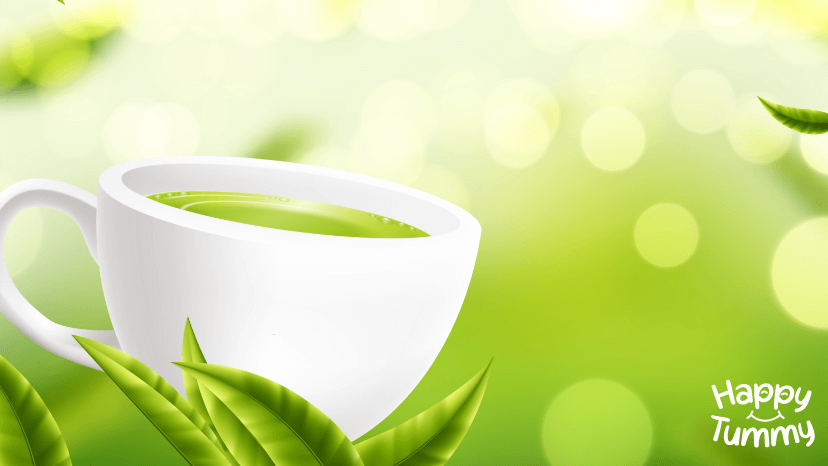
Originally prized for its flavour and aroma, green tea’s potential health advantages have drawn much attention lately. There are some curative and therapeutic benefits of green tea for liver conditions.
According to studies, green tea can aid with regulating lipid metabolism, which manages the buildup of lipids in the liver.
Unlike black tea, green tea is unfermented, which helps preserve its antioxidant polyphenolic catechols.[9][A4] As a result, its components contain antioxidant activity and can revitalise health.
However, green tea may not cure any liver diseases or conditions; however it may act as a protective factor to the liver
#9 Nuts
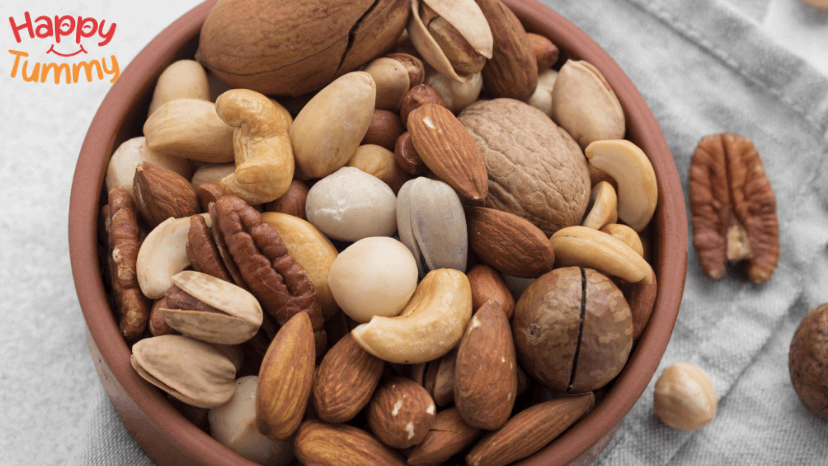
Nuts are a broad category of dry, edible, high-energy fruits and seeds, such as peanuts, walnuts, pistachios, almonds, hazelnuts, and chestnuts with similar nutritional makeup.
In fact, these foods are high in fibre, minerals, essential amino acids, vitamin E, B2, and B9, antioxidants, phenolic compounds, and mono- and polyunsaturated fatty acids (MUFAs and PUFAs), including omega-3 fatty acids.
Because they have favourable metabolic effects, these nutrients benefit your health.
As nuts are rich in antioxidants, fibre, and unsaturated fatty acids, eating them helps manage the prevalence of NAFLD. [10]
So, munch on some soaked nuts first in the morning for liver health.
#10 Chocolate
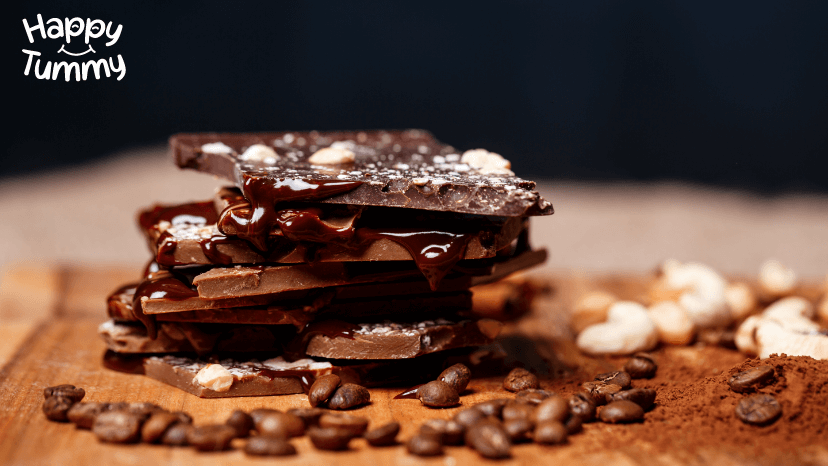
Chocolate, particularly dark chocolate rich in cocoa, may have potential benefits for liver health.
A 2016 study in Luxembourg suggested that daily chocolate consumption might improve liver enzyme levels and help protect against insulin resistance.
Another study found that cocoa polyphenols may have antioxidant properties and improve liver health in people with non-alcoholic steatohepatitis (NASH). They may also enhance blood vessel function in these patients. [11][A5]
Including moderate amounts of cocoa-rich chocolate in your diet could support liver health, though more research is needed.
#11 Turmeric and Curcumin
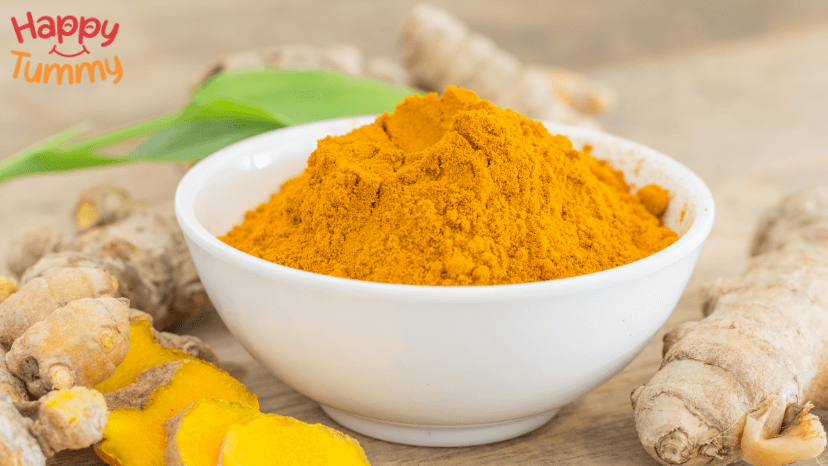
The spice turmeric, which is well-known for its vivid hue and therapeutic qualities, could help maintain liver function.
Curcumin, its major ingredient, is well-known for its potent anti-inflammatory and antioxidant properties, which make it a popular option for supporting liver function and averting liver-related problems.
People with non-alcoholic fatty liver disease (NAFLD) may benefit from it, according to research.
Consuming turmeric dramatically decreased levels of inflammatory markers and liver fat accumulation, two important aspects of controlling this illness, according to a case-control research. [12] [A6]
#12 Rajma
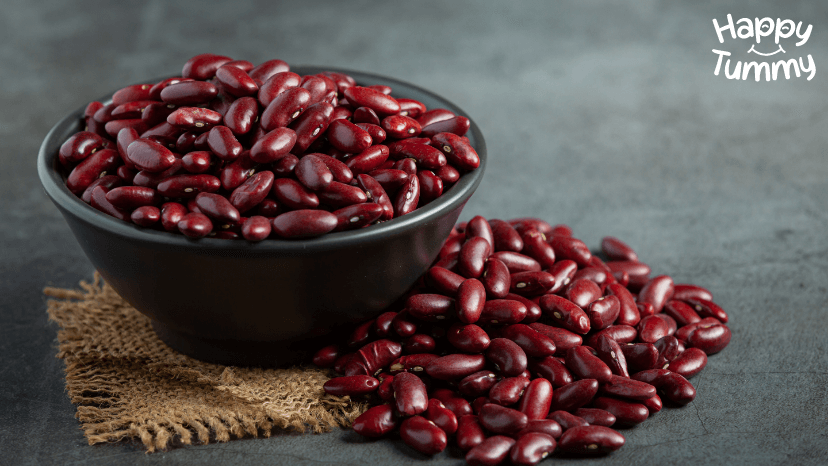
Rajma, often called adzuki beans, is rich in minerals, fibre, and B vitamins. It is said to detoxify the liver and kidneys.
Kidney beans are also low in saturated fat and high in fibre and protein. They may assist in managing blood sugar and cholesterol, which increase the risk of fatty liver disease.
As a result, kidney beans’ high fibre content encourages proper digestion and may aid in managing cholesterol levels, which are essential for liver function. [13][A7]
# 13 Amla
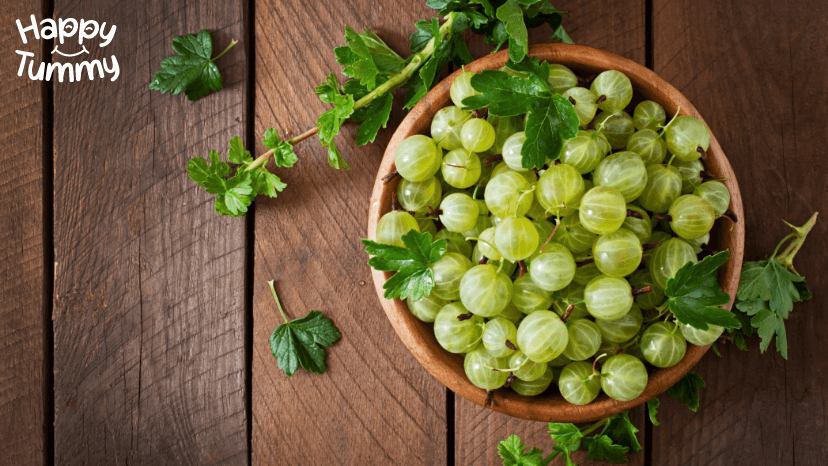
Oxidative stress significantly influences liver damage and functioning. Antioxidants are essential for reducing oxidative stress and shielding the liver from harm caused by free radicals.
Vitamin C and other abundant antioxidants in amla may help shield liver cells from oxidative stress and damage by free radicals.
By synthesising detoxifying enzymes, it may aid in the removal of toxins from the liver and improve liver function.[14]
Furthermore, liver protection may benefit significantly from amla’s anti-inflammatory qualities.[15] Amla’s strong nutritional profile and therapeutic qualities benefit liver health.
Foods To Avoid
A well-balanced diet is the best for overall wellness. However, the liver may also have more difficulty processing certain meals and food groups. These consist of:
- Foods high in fat: Fast food, fried foods, Chips, and packaged foods can also contain shockingly high fat content.
- Starchy foods: These consist of highly processed breads, pastas, cakes, and baked foods that are poor in fibre.
- Sugar: Reducing the consumption of sugar and sugary foods, including baked goods, sweets, and cereals, could reduce the strain on the liver.
- Salt: Some easy strategies to reduce salt intake are cutting back on eating out, selecting low-sodium canned meats or veggies, and limiting or staying away from salted deli meats and bacon.
- Alcohol: If you want to give your liver a break, you could choose to cut back on your alcohol consumption or cut it out entirely. Drinking alcohol can harm and ruin your liver. Reducing alcohol consumption may reduce liver damage. If you already have liver impairment, you may need to stop drinking entirely.
If you’re concerned about your liver health, talk to our healthcare provider about what you may do. Reach out to our certified nutritionist for a 45-minute consultation and get a customised nutrition plan created just for you.
Caring for Your Liver
The second-largest organ in the body, the liver, is in charge of numerous vital functions that maintain the health of your body.
All toxins and medications are eliminated from your body via your liver. It aids in the breakdown of all your food as well.
Your liver can help you absorb fat, store sugar, make proteins, and regulate cholesterol levels. It also aids with hormone regulation. To live a healthier life, you must take care of your liver.
1. Increase Your Intake Of Fibre for a Better Liver Health
Nuts, beans, and vegetables are fibre-rich foods that may support healthy liver function. Increased consumption of fibre-rich foods aids liver detoxification by making it easier for the body to eliminate waste through the digestive tract.
It refers to “cleaning out” the intestines, which lessens the strain on the liver to break down toxins. Additionally, fibre facilitates the regulation of bowel motions, guaranteeing effective waste removal and promoting liver health in general.
Planning your meals may be difficult sometimes, and you’re always looking for new ways to increase your fibre intake. But you’re not sure how to go about it.
You don’t have to worry, though, since Aashirvaad Atta and a team of knowledgeable nutritionists developed the My Meal Plan, which estimates your daily fibre intake and creates a meal plan that satisfies recommended intake guidelines.
2. Select Good Fats for a Better Liver Health
Instead of meals that contain trans or saturated fats, choose foods that contain monounsaturated and omega-3 fats, which are beneficial unsaturated fats.
3. Consume an adequate amount of water for a Better Liver Health
Water is usually a good option when selecting beverages because it is sugar-free. It keeps you from becoming dehydrated and supports healthy liver function.
Drinking water aids in liver detoxification by making it easier for toxins to pass through the body. Thus, it allows the liver to filter out toxins more efficiently.
Patients with any liver disorders should Restrict the intake of salt and water if oedema and ascites are present. The quantity should be advised by the healthcare professional based on the urine output.
Since water makes up a significant portion of blood volume, and a dehydrated liver cannot eliminate toxins effectively, proper hydration guarantees that the liver can cleanse the blood effectively.
4. Engage in Regular Exercise for a Better Liver Health
Maintaining a healthy body mass index (BMI) may help manage nonalcoholic fatty liver disease.
Regular exercise may aid in liver detoxification by managing insulin sensitivity, inflammation, liver fat storage, and improving blood flow to the liver.
It allows the liver to filter toxins from the blood more effectively and generally preserves liver health.
5. Consume A Healthier Diet for a Better Liver Health
Steer clear of high-calorie items containing sugar, processed carbs, and saturated fat to eat balanced meals.
Fibre comes from whole-grain bread, grains, cereals, and fresh fruits and vegetables. A healthy diet must include good biological value protein such as lean meat, pulses, low-fat dairy, and healthy fats.
6. Indulge in Rainbow Food for a Better Liver Health
This helps ensure you get all the fibre and nutrients you want to eat fruits and vegetables in every rainbow hue. Choose whole-grain cereals breads, and cereals over processed carbohydrates like white bread and doughnuts.
Dairy, fat, and a little meat can also be beneficial. However, limit your intake and seek “good” (monounsaturated, polyunsaturated) fats from vegetable oils, nuts, seeds, and seafood.
Takeaway
The liver is a part of the body’s natural detoxification system, which helps filter out toxins and waste products from the blood.
Foods that promote liver health include foods high in fibre, antioxidants, or healthy fats, such as ginger, coffee, turmeric, berries, all vegetables, beans, nuts, and fatty fish.
Additionally, various meals and dietary groups, such as fried foods, highly processed carbohydrates, and fast food, might damage the liver. It may be best to stay away from these.
Making liver-friendly food choices can help someone steer clear of future health problems.
Although the liver primarily takes care of itself, a person can help maintain liver health by eating a balanced diet. A healthcare expert could also assist you in creating a diet plan that suits your needs.
For detailed assistance & queries related to health and nutrition you can Ask a question to our happy tummy expert on our website.
Frequently Asked Questions
Even while the liver cannot be “flushed” or detoxified, there are a number of antioxidant-rich foods that help support liver health. Specifically, beetroot juice, coffee, and green tea may support liver function. [14] [15]
If someone has fatty liver disease, they should limit or preferably avoid the consumption of deep-fried foods, carbonated beverages, alcoholic beverages, refined cereals, added sugar, etc.
Fat in the liver can come from diet, increased fat production in the liver, or decreased ability of the liver to clear the fat. Genetics can affect all of these processes.
Diets that contain high amounts of carbohydrates and sugars (including fructose and high fructose corn syrup) can stimulate fat production in the liver cells.
Lifestyle alteration, including regular physical activity, stress management dietary modifications such as consuming a healthy balanced diet filled with fiber, whole grains, multigrain, good fats such as MUFA & PUFA, goo plays an important role in the management of non-alcoholic fatty liver disease (NAFLD).
For detailed diagnosis, assistance & management kindly contact a hepatologist.
It is not possible to reduce a fatty liver with a specific drug or quick treatment. Nonetheless, adopting a healthy lifestyle can be beneficial. One strategy for managing this illness is to maintain a balanced diet and exercise regularly.












